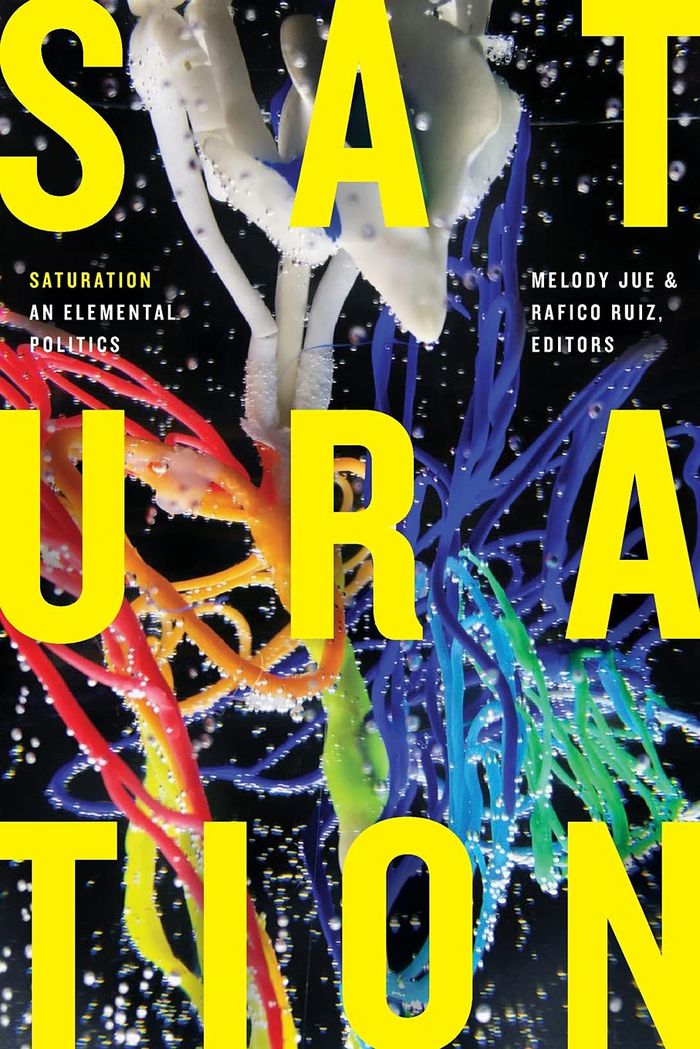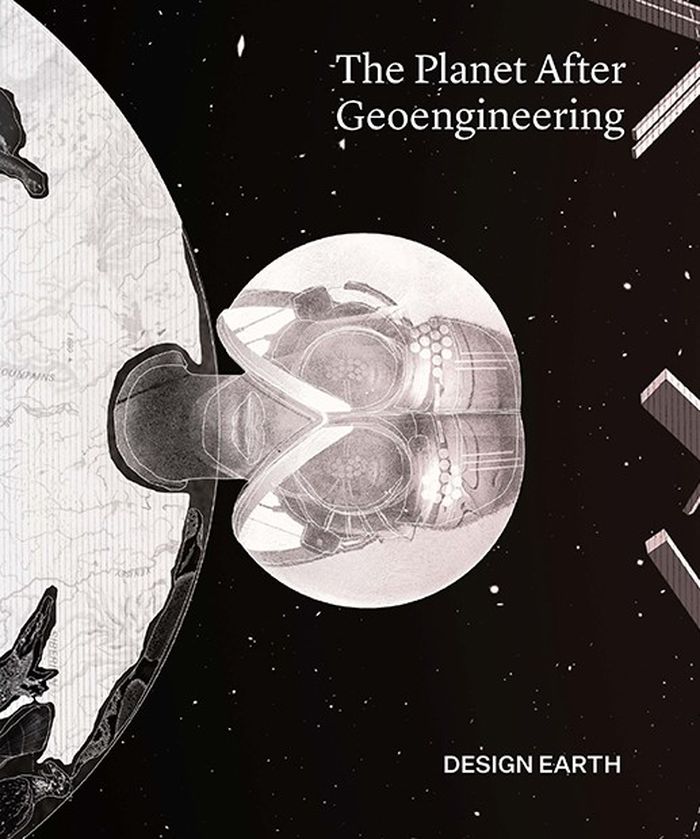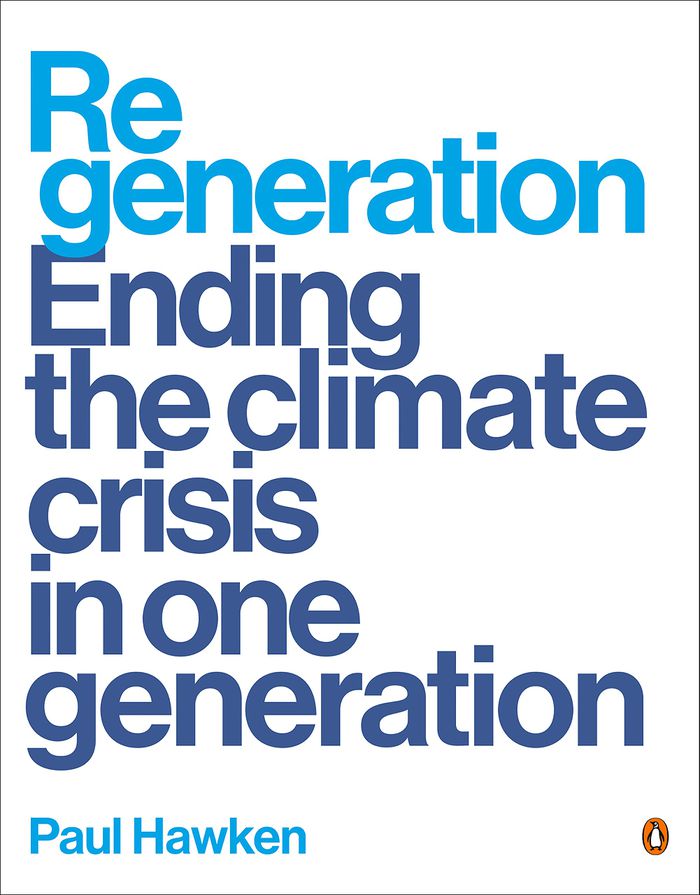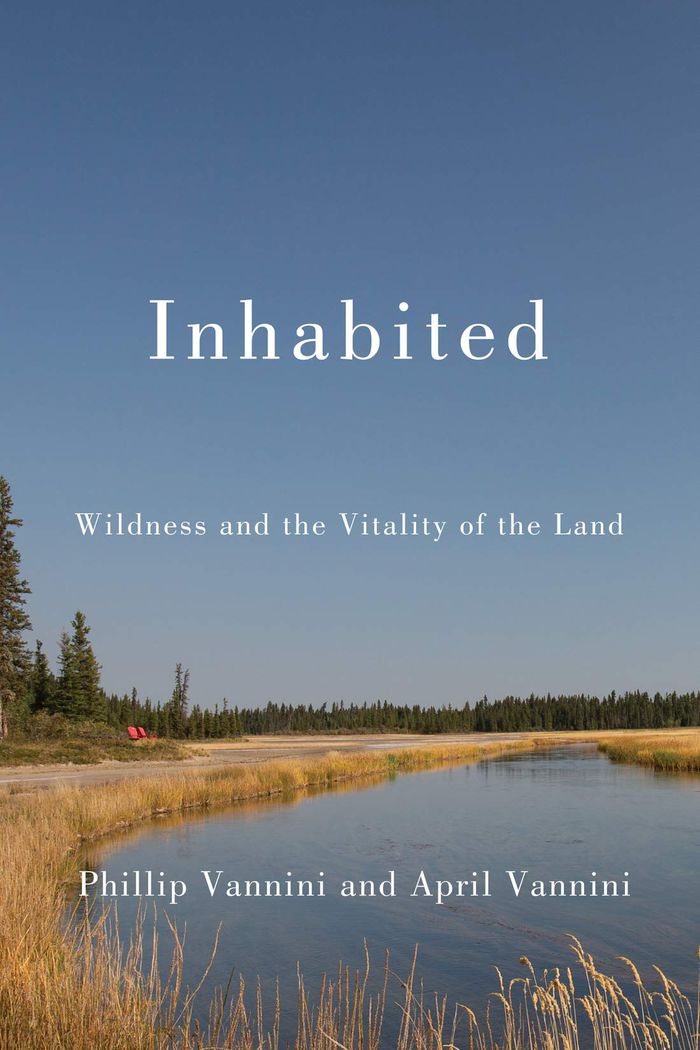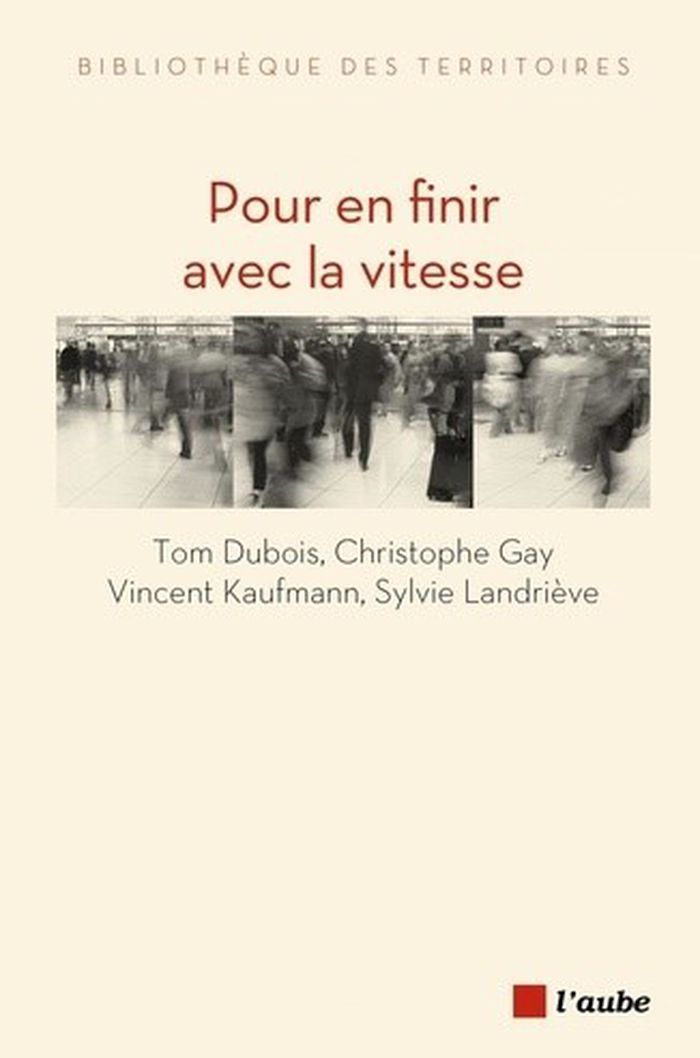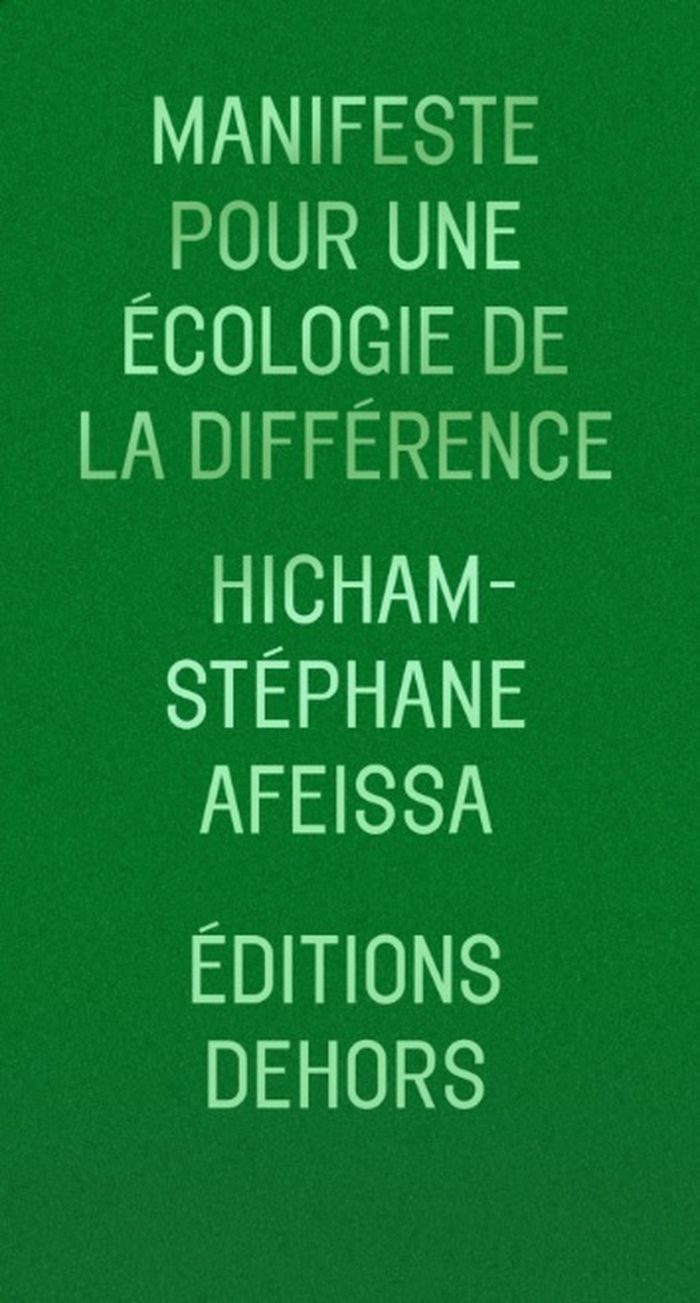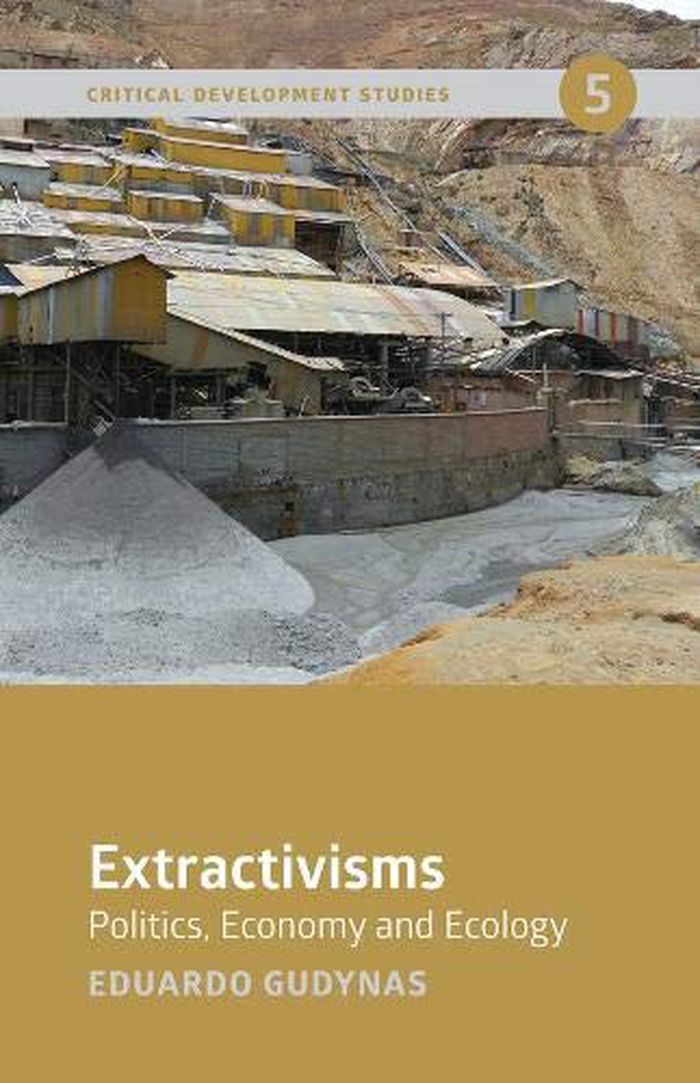$42.95
(disponible sur commande)
Résumé:
A unique documentation of how ideology translated into colonialism, settlement, urbanization, infrastructure, and mechanized agriculture radically reshaped the environment of Palestine-Israel. The biblical metaphor of a ''Land of Milk and Honey'' has denoted for millennia a prophecy and promise for plenitude. This book, published in conjunction with the Israeli(...)
octobre 2021
Land. Milk. Honey. Animal stories in imagined landscapes. 17th Venice Biennale
Actions:
Prix:
$42.95
(disponible sur commande)
Résumé:
A unique documentation of how ideology translated into colonialism, settlement, urbanization, infrastructure, and mechanized agriculture radically reshaped the environment of Palestine-Israel. The biblical metaphor of a ''Land of Milk and Honey'' has denoted for millennia a prophecy and promise for plenitude. This book, published in conjunction with the Israeli Pavilion at the seventeenth International Architecture Exhibition of the Venice Biennale, examines the reciprocal relations between humans, animals, and the environment within the context of modern Palestine-Israel, and demonstrates how this promise has become an action-plan over the course of the twentieth century. ''Land. Milk. Honey'' investigates how colonialism, urbanization, and mechanized agriculture radically reshaped the environment and altered human-animal relationships. It shows how the celebrated metamorphosis of the region into a prosperous agricultural landscape was entangled with irreparable damage to the environment, as well as the disruption of human communities. And it highlights the predicaments that both the environment and its inhabitants are facing after the territory has, over a century, been the testbed of modernist aspirations for plenitude.
$37.95
(disponible sur commande)
Résumé:
Bringing together media studies and environmental humanities, the contributors to ''Saturation'' develop saturation as a heuristic to analyze phenomena in which the elements involved are difficult or impossible to separate. In ordinary language, saturation describes the condition of being thoroughly soaked, while in chemistry it is the threshold at which something can be(...)
novembre 2021
Saturation: an elemental politics
Actions:
Prix:
$37.95
(disponible sur commande)
Résumé:
Bringing together media studies and environmental humanities, the contributors to ''Saturation'' develop saturation as a heuristic to analyze phenomena in which the elements involved are difficult or impossible to separate. In ordinary language, saturation describes the condition of being thoroughly soaked, while in chemistry it is the threshold at which something can be maximally dissolved or absorbed in a solution. Contributors to this collection expand notions of saturation beyond water to consider saturation in sound, infrastructure, media, Big Data, capitalism, and visual culture. Essays include analyses of the thresholds of HIV detectability in bloodwork, militarism's saturation of oceans, and the deleterious effects of the saturation of cellphone and wi-fi signals into the human body. By channeling saturation to explore the relationship between media, the environment, technology, capital, and the legacies of settler colonialism, ''Saturation'' illuminates how elements, the natural world, and anthropogenic infrastructures, politics, and processes exist in and through each other.
$36.95
(disponible sur commande)
Résumé:
The term 'geoengineering' refers to technologies that counteract the effects of anthropogenic climate change by deliberately intervening in Earth systems. In the midst of a climate crisis, and with disparate views on whether planetary-scale design is the appropriate response at all, 'The Planet After Geoengineering' employs a speculative fiction approach to think with and(...)
juillet 2021
The planet after geoengineering
Actions:
Prix:
$36.95
(disponible sur commande)
Résumé:
The term 'geoengineering' refers to technologies that counteract the effects of anthropogenic climate change by deliberately intervening in Earth systems. In the midst of a climate crisis, and with disparate views on whether planetary-scale design is the appropriate response at all, 'The Planet After Geoengineering' employs a speculative fiction approach to think with and against geoengineering as a form of planetary management. The graphic novel makes climate engineering and its controversies visible in a series of five stories that are collectively assembled into a planetary section from the deep underground to outer space. Each geostory - Petrified Carbon, Arctic Albedo, Sky River, Sulfur Storm, and Dust Cloud - depicts possible future Earths that we come to inhabit on the heels of a geoengineering intervention all while situating such promisory visions within a genealogy of climate-control projects from nineteenth-century rainmaking machines and volcanic eruptions to Cold War military plans. Such fabrications of an engineerable earth open a space to forge a new geo-politics that includes the actual Earth - its dimensions, processes, and lifeforms - as constitutive of design and the planet.
$34.00
(disponible sur commande)
Résumé:
"Regeneration" offers a visionary new approach to climate change, one that weaves justice, climate, biodiversity, equity, and human dignity into a seamless tapestry of action, policy, and transformation that can end the climate crisis in one generation. It is the first book to describe and define the burgeoning regeneration movement spreading rapidly throughout the(...)
Regeneration: ending the climate crisis in one generation
Actions:
Prix:
$34.00
(disponible sur commande)
Résumé:
"Regeneration" offers a visionary new approach to climate change, one that weaves justice, climate, biodiversity, equity, and human dignity into a seamless tapestry of action, policy, and transformation that can end the climate crisis in one generation. It is the first book to describe and define the burgeoning regeneration movement spreading rapidly throughout the world. "Regeneration" describes how an inclusive movement can engage the majority of humanity to save the world from the threat of global warming, with climate solutions that directly serve our children, the poor, and the excluded. This means we must address current human needs, not future existential threats, real as they are, with initiatives that include but go well beyond solar, electric vehicles, and tree planting to include such solutions as the fifteen-minute city, bioregions, azolla fern, food localization, fire ecology, decommodification, forests as farms, and the number one solution for the world: electrifying everything. Paul Hawken and the nonprofit Regeneration Organization are launching a series of initiatives to accompany the book, including a streaming video series, curriculum, podcasts, teaching videos, and climate action software. "Regeneration" is the inspiring and necessary guide to inform the rapidly spreading climate movement.
Aki-wayn-zih
$27.95
(disponible sur commande)
Résumé:
Members of Eli Baxter’s generation are the last of the hunting and gathering societies living on Turtle Island. They are also among the last fluent speakers of the Anishinaabay language known as Anishinaabaymowin. 'Aki-wayn-zih' is a story about the land and its spiritual relationship with the Anishinaabayg, from the beginning of their life on Miss-koh-tay-sih Minis(...)
Aki-wayn-zih
Actions:
Prix:
$27.95
(disponible sur commande)
Résumé:
Members of Eli Baxter’s generation are the last of the hunting and gathering societies living on Turtle Island. They are also among the last fluent speakers of the Anishinaabay language known as Anishinaabaymowin. 'Aki-wayn-zih' is a story about the land and its spiritual relationship with the Anishinaabayg, from the beginning of their life on Miss-koh-tay-sih Minis (Turtle Island) to the present day. Baxter writes about Anishinaabay life before European contact, his childhood memories of trapping, hunting, and fishing with his family on traditional lands in Treaty 9 territory, and his personal experience surviving the residential school system. Examining how Anishinaabay Kih-kayn-daa-soh-win (knowledge) is an elemental concept embedded in the Anishinaabay language, 'Aki-wayn-zih' explores history, science, math, education, philosophy, law, and spiritual teachings, outlining the cultural significance of language to Anishinaabay identity. Recounting traditional Ojibway legends in their original language, fables in which moral virtues double as survival techniques, and detailed guidelines for expertly trapping or ensnaring animals, Baxter reveals how the residential school system shaped him as an individual, transformed his family, and forever disrupted his reserve community and those like it. Through spiritual teachings, historical accounts, and autobiographical anecdotes, 'Aki-wayn-zih' offers a new form of storytelling from the Anishinaabay point of view.
$37.95
(disponible sur commande)
Résumé:
People are key elements of wild places. At the same time, human entanglements with wild ecologies involve extractivism, the growth of resource-based economies, and imperial-colonial expansion, activities that are wreaking havoc on our planet. Through an ethnographic exploration of Canada’s ten UNESCO Natural World Heritage sites, ''Inhabited'' reflects on the meanings(...)
novembre 2021
Inhabited: Wildness and the vitality of the land
Actions:
Prix:
$37.95
(disponible sur commande)
Résumé:
People are key elements of wild places. At the same time, human entanglements with wild ecologies involve extractivism, the growth of resource-based economies, and imperial-colonial expansion, activities that are wreaking havoc on our planet. Through an ethnographic exploration of Canada’s ten UNESCO Natural World Heritage sites, ''Inhabited'' reflects on the meanings of wildness, wilderness, and natural heritage. As we are introduced to local inhabitants and their perspectives, Phillip Vannini and April Vannini ask us to reflect on the colonial and dualist assumptions behind the received meaning of wild, challenging us to reimagine wildness as relational and rooted in vitality. Over the three years they spent in and around these sites, they learned from Indigenous and non-Indigenous peoples about their entanglements with each other and with non-human animals, rocks, plants, trees, sky, water, and spirits. The stories, actions, and experiences they encountered challenge conventional narratives of wild places as uninhabited by people and disconnected from culture and society. While it might be tempting to dismiss the idea of wildness as outdated in the Anthropocene era, ''Inhabited'' suggests that rethinking wildness offers a better – if messier – way forward. Part geography and anthropology, part environmental and cultural studies, and part politics and ecology, ''Inhabited'' balances a genuine love of nature’s vitality with a culturally responsible understanding of its interconnectedness with more-than-human ways of life.
$28.95
(disponible sur commande)
Résumé:
Pouvoir se déplacer de plus en plus rapidement grâce à la vitesse du train, de la voiture, de l’avion… a modifié nos modes de vie fondamentalement. Mais si voyager toujours plus loin, vite et à bas coût, au quotidien et pour les vacances, exauce les rêves de liberté et de découverte d’une partie croissante de la population mondiale, il y a un revers à la médaille?:(...)
août 2021
Pour en finir avec la vitesse
Actions:
Prix:
$28.95
(disponible sur commande)
Résumé:
Pouvoir se déplacer de plus en plus rapidement grâce à la vitesse du train, de la voiture, de l’avion… a modifié nos modes de vie fondamentalement. Mais si voyager toujours plus loin, vite et à bas coût, au quotidien et pour les vacances, exauce les rêves de liberté et de découverte d’une partie croissante de la population mondiale, il y a un revers à la médaille?: fatigue, stress, inégalités, fragilité du système, congestion et pollution. La récente révolution numérique n’a permis de diminuer ni les déplacements, ni le rythme de vie de nos contemporains. Est-il (encore) possible de sortir de l’emprise de la vitesse?? Les auteurs donnent sur le sujet un point de vue inédit et proposent de réorganiser le territoire pour permettre de vivre en plus grande proximité et répondre aux enjeux climatiques.
$27.95
(disponible sur commande)
Résumé:
Comment mettre un terme au rapport de domination et de violence que nous entretenons avec la nature en général et les animaux en particulier ? Peut-on espérer y parvenir en apprenant à nous réconcilier avec la Vie censée relier de manière fondamentale l’homme et l’animal, et à entrer en résonance avec une Nature qui a cessé de nous parler ? Le but de ce Manifeste est(...)
mars 2021
Manifeste pour une écologie de la difference
Actions:
Prix:
$27.95
(disponible sur commande)
Résumé:
Comment mettre un terme au rapport de domination et de violence que nous entretenons avec la nature en général et les animaux en particulier ? Peut-on espérer y parvenir en apprenant à nous réconcilier avec la Vie censée relier de manière fondamentale l’homme et l’animal, et à entrer en résonance avec une Nature qui a cessé de nous parler ? Le but de ce Manifeste est de montrer les limites et les faiblesses du principe d’une telle solution en plaidant pour une écologie de la différence. L’animal conçu comme être sensible et vulnérable, méritant en tant que tel pitié et compassion, est une abstraction philosophique qui, sous couvert d’élever le statut des animaux et de leur garantir une forme de protection morale et juridique, commence par leur faire violence en ne respectant pas leur altérité fondamentale et la richesse de leur mode d’existence. La planète – même et peut-être plus que jamais à l’âge de l’Anthropocène – demande elle aussi à être comprise dans son étrangeté comme nature créative, potentiellement incontrôlable et foncièrement imprévisible.
$20.00
(disponible sur commande)
Résumé:
Nature and communities in the global south is being overwhelmed at a shocking rate. In many places this is due to ventures such as large-scale open-pit mining, oil extraction in tropical areas, and the spread of monocultures. These and other such forms of natural resource appropriation are usually known as extractivisms. This introductory book on the one hand adopts an(...)
septembre 2021
Extractivisms: politics, economy and ecology
Actions:
Prix:
$20.00
(disponible sur commande)
Résumé:
Nature and communities in the global south is being overwhelmed at a shocking rate. In many places this is due to ventures such as large-scale open-pit mining, oil extraction in tropical areas, and the spread of monocultures. These and other such forms of natural resource appropriation are usually known as extractivisms. This introductory book on the one hand adopts an interdisciplinary and critical perspective, incorporating contributions from economics, politics, ecology, and more. On the other hand it is an exercise in the politics among humans and with the environment. Eduardo Gudnyas explores negative local impacts such as ecological and health degradation or violence, along with spillover effects that redefines democracy and justice. Significantly, presented for the first time in English is a comprehensive overview of the theoretical innovations currently being discussed in the South, such as the distinction between appropriation and production modes and a redefinition of surplus to include social and economic features or new understandings on conflict dynamics. Furthermore, Gudynas discusses the Latin American peculiarities of extractivisms produced both by conservative and new-left governments, making clear that it has very deep roots in culture and ideologies, and offers solutions for the future.
La Terre comme communauté
$18.95
(disponible sur commande)
Résumé:
Le prophète de l’écologie était d’abord un forestier. « L’Almanach d’un comté des sables » s’appuie sur 20 ans de travail de terrain. Dans ce recueil d’articles, on découvre l’élaboration progressive de sa conception de la protection de la nature.Dans le contexte contemporain d’innovation et de réflexion sur la libre évolution, Leopold nous ramène aux fondamentaux de la(...)
La Terre comme communauté
Actions:
Prix:
$18.95
(disponible sur commande)
Résumé:
Le prophète de l’écologie était d’abord un forestier. « L’Almanach d’un comté des sables » s’appuie sur 20 ans de travail de terrain. Dans ce recueil d’articles, on découvre l’élaboration progressive de sa conception de la protection de la nature.Dans le contexte contemporain d’innovation et de réflexion sur la libre évolution, Leopold nous ramène aux fondamentaux de la protection de la nature. Textes sélectionnés par Daniel Vallauri et Jean-Claude Génot

